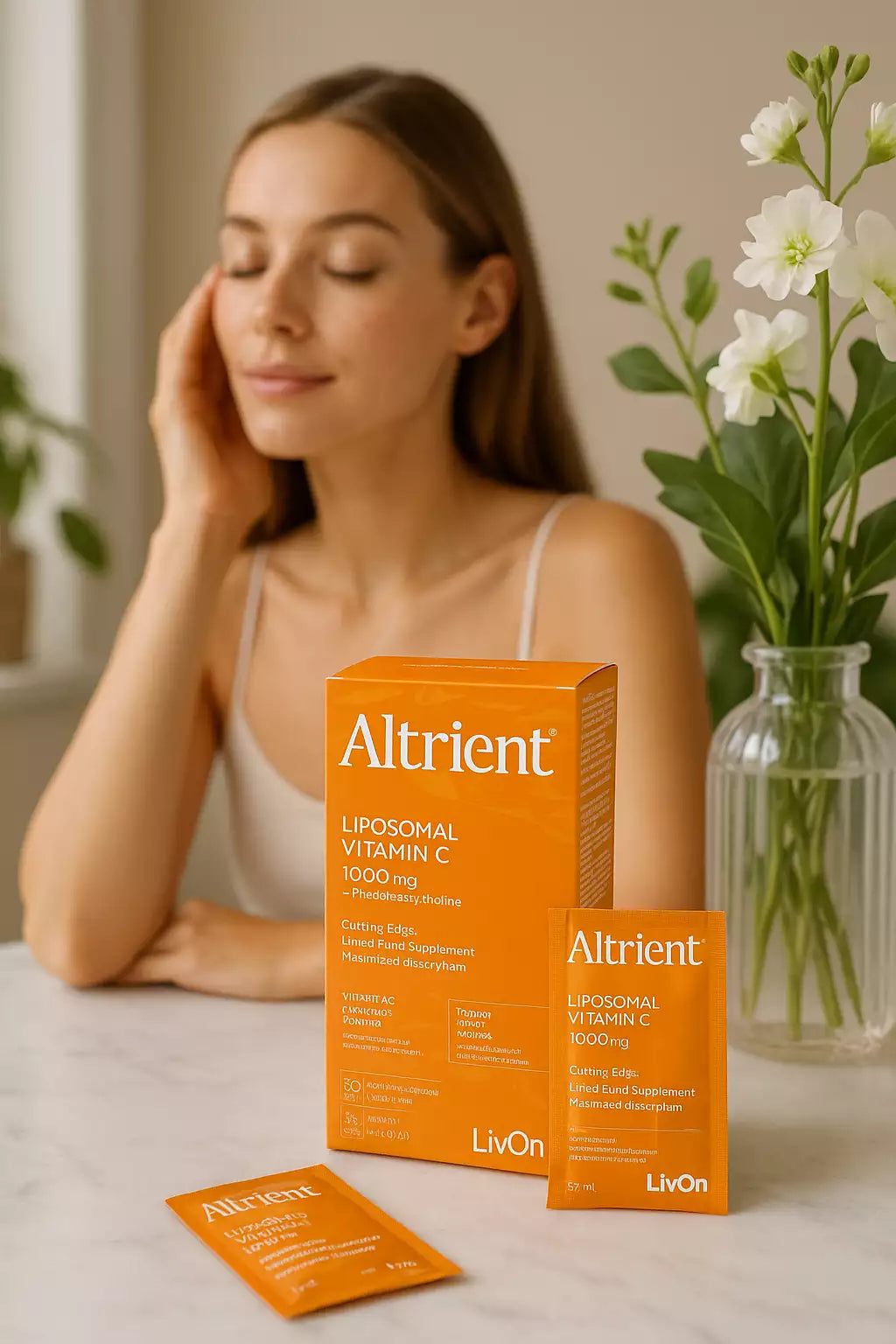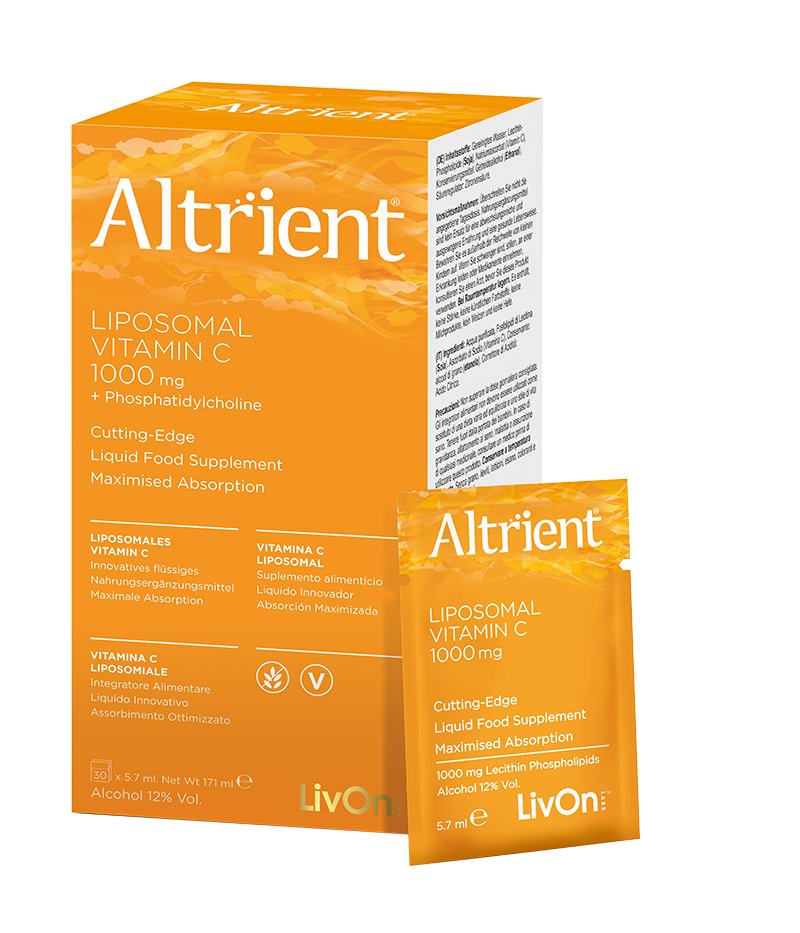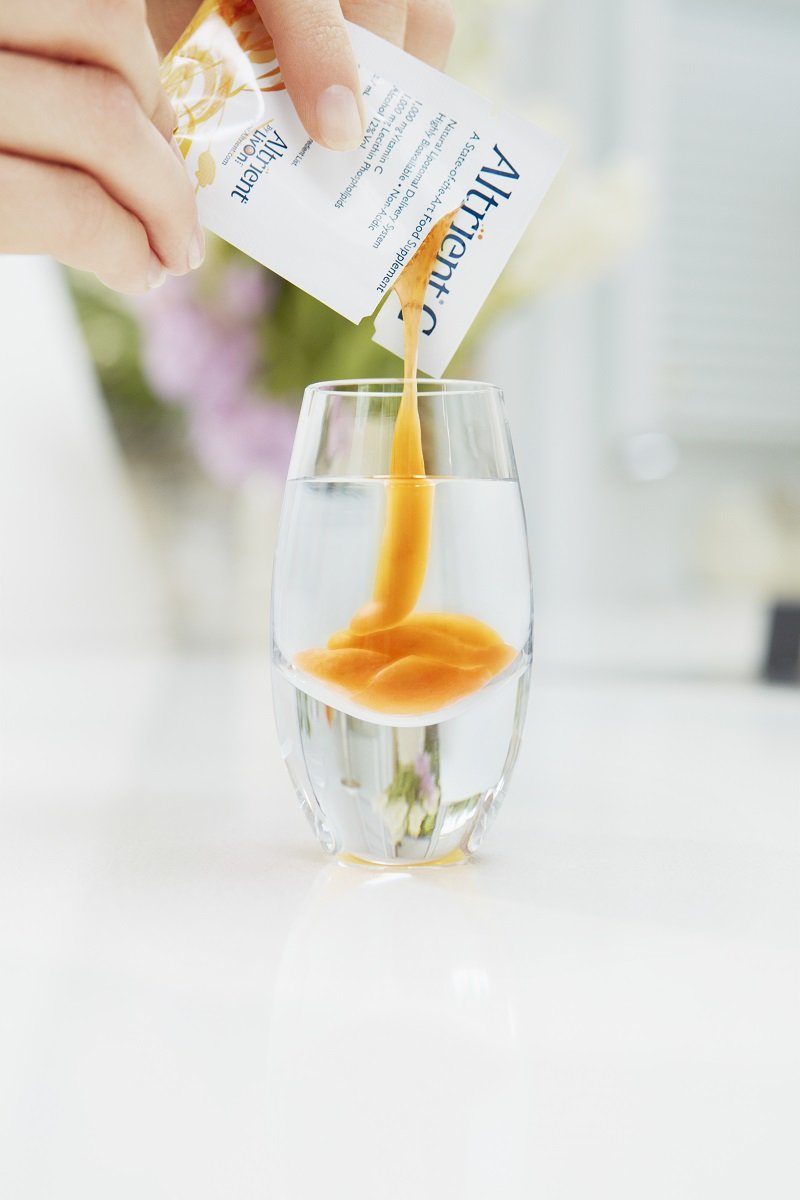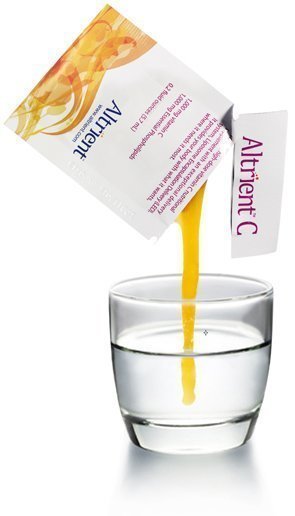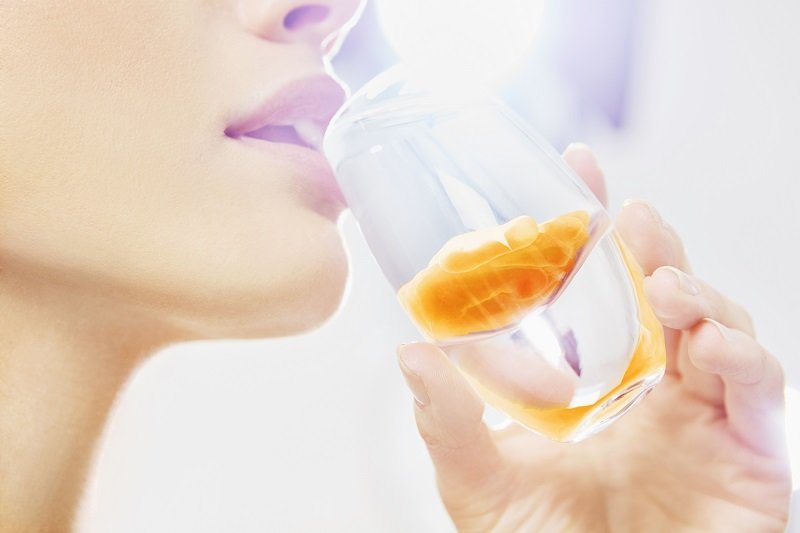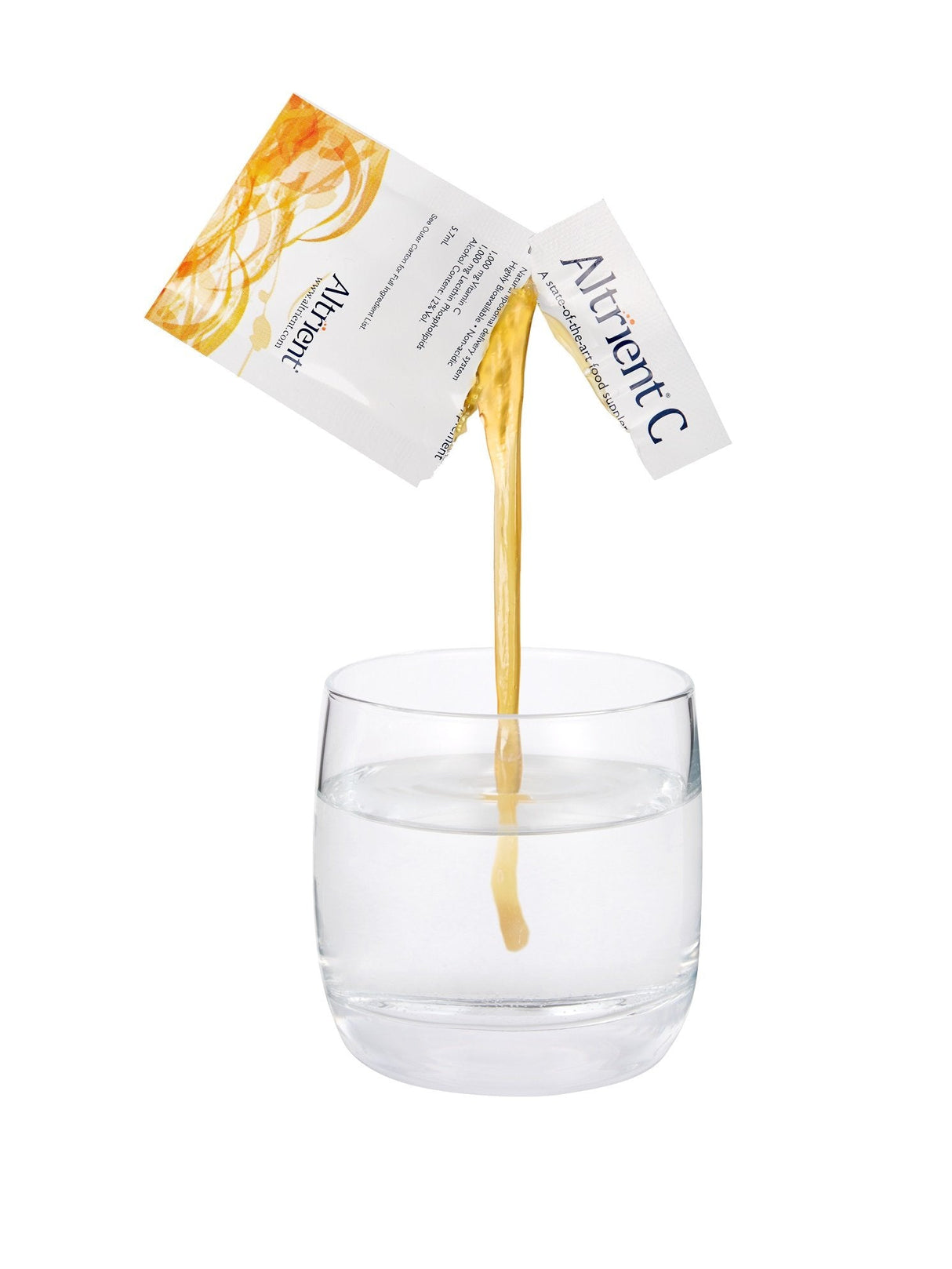Altrient Liposomal Vitamin C (1000 mg)
Altrient Liposomal Vitamin C (1000 mg) Black is backordered and will ship as soon as it is back in stock.
Attachment
Altrient Liposomal Vitamin C – Very good bioavailability and proven benefits
Altrient Liposomal Vitamin C (1000 mg) is a pioneering vitamin C supplement that combines advanced liposomal technology with maximum bioavailability.
This unique formulation ensures that vitamin C is transported directly to the cells - where it is needed most - without being destroyed by the digestive system.
The result is one of the most effective options on the market for those who want optimal levels of vitamin C.
Benefits and effects
Altrient Liposomal Vitamin C provides a number of health benefits thanks to its superior absorption and delivery method:
- Strengthens the immune system: Contributes to the normal function of the immune system, especially during periods of increased physical and mental stress.
- Promotes collagen production: Important for healthy skin, strong joints, connective tissue, gums and blood vessels.
- Reduces fatigue and exhaustion: Contributes to normal energy turnover and helps the body maintain stable energy levels.
- Protects cells against oxidative stress: Powerful antioxidant that protects against damage caused by free radicals.
- Improves skin elasticity: Documented effect on skin firmness and elasticity - reduces fine lines and promotes an even skin tone.
- Increases iron absorption: Supports the body's ability to absorb iron, important for oxygen transport.
- Supports the nervous system: Contributes to normal nerve function and maintains psychological balance.
-
Promotes recovery: Reduces stiffness and supports muscle repair after exercise.
What makes Altrient unique?
- Advanced liposomal technology: The vitamin C molecules are encapsulated in liposomes made of phospholipids, which protect against digestive enzymes and ensure uptake in the cells.
- High bioavailability: Documented to outperform traditional vitamin C supplements such as tablets, capsules and powders.
- Gentle on the stomach: Non-acidic formulation that is gentle on the digestive system.
- Free of allergens and additives: No GMOs, sugar, gluten, yeast, milk or artificial colors and flavors.
Technical specifications
Nutritional content per dose (5.7 ml):
- Vitamin C (as sodium ascorbate): 1000 mg
- Phospholipids (from soy lecithin): 1000 mg
-
-
of which phosphatidylcholine: 500 mg
-
Dosage:
Take 1-2 sachets daily. Squeeze the contents into 30-60 ml of water or juice and consume on an empty stomach at least 15 minutes before meals. The contents do not dissolve in the liquid, so drink quickly.
Instructions for use
-
Tear or cut off the dotted end of the bag.
-
Squeeze the contents into a small glass with water, juice or the desired drink.
-
Take on an empty stomach for faster absorption.
-
Wait at least 15 minutes before eating.
Disclaimer and reservations
- Dietary supplements should not replace a varied diet.
- Consult a healthcare professional before use in case of pregnancy, breastfeeding or medical conditions.
- Keep out of the reach of children.
- Store cool and dry. Do not freeze or expose to direct sunlight.
Freedom of expression and right to information
Uno Vita reserves the right to share scientific information about health and wellness in accordance with the principles of freedom of expression, including:
- UN Human Rights, Article 19
- Norwegian Constitution §100
- America's First Amendment
Scientific references
Hickey, S., & Roberts, H. (2005). Ascorbate: The Science of Vitamin C. Lulu Press.
Carr, A.C., & Maggini, S. (2017). "Vitamin C and Immune Function." Nutrients.
Levine, M. et al. (1996). "Vitamin C Pharmacokinetics in Healthy Volunteers." PNAS.
Padayatty, S.J., et al. (2004). "Vitamin C as an Antioxidant." The American Journal of Clinical Nutrition.
Lykkesfeldt, J., & Poulsen, H. E. (2010). "Vitamin C and Oxidative Stress." Current Medicinal Chemistry.
González, M.J. et al. (2005). "Vitamin C and Cancer Therapy." Integrative Cancer Therapies.
Michels, A. J., Hagen, T. M., & Frei, B. (2013). "Vitamin C in Health and Disease." Nutrients.
Bozonet, S.M., et al. (2015). “High-Dose Vitamin C and Immune Function.” Nutrients.
Jayedi, A., et al. (2019). "Vitamin C Intake and Risk of Mortality." BMJ.
Englard, S., & Seifter, S. (1986). "The Biochemical Functions of Ascorbic Acid." Annual Review of Nutrition.
Schlueter, A.K., & Johnston, C.S. (2011). "Vitamin C and Cardiovascular Disease." American Journal of Lifestyle Medicine.
Huang, A., et al. (2003). "Liposomal Delivery Systems in Nutrition." International Journal of Pharmaceutics.
